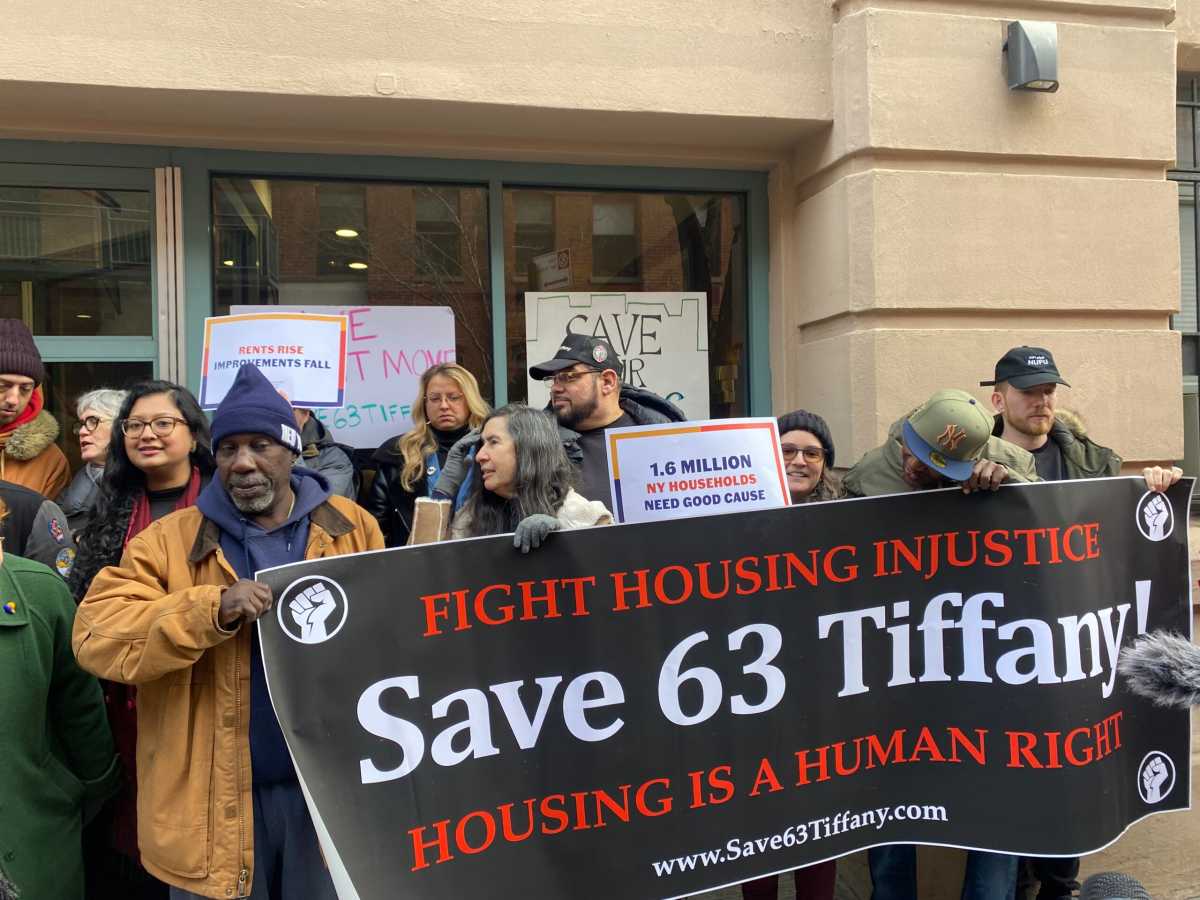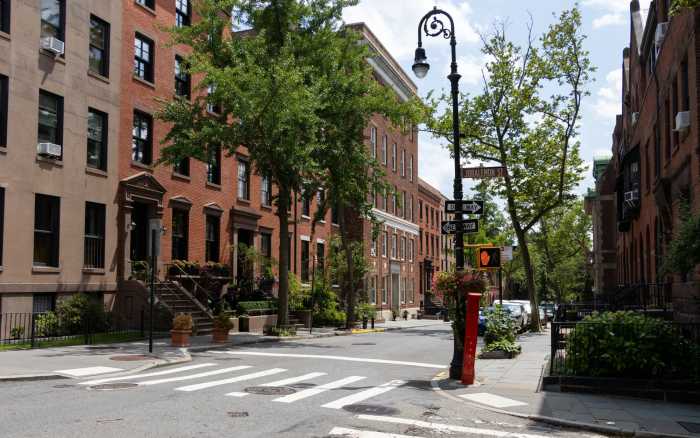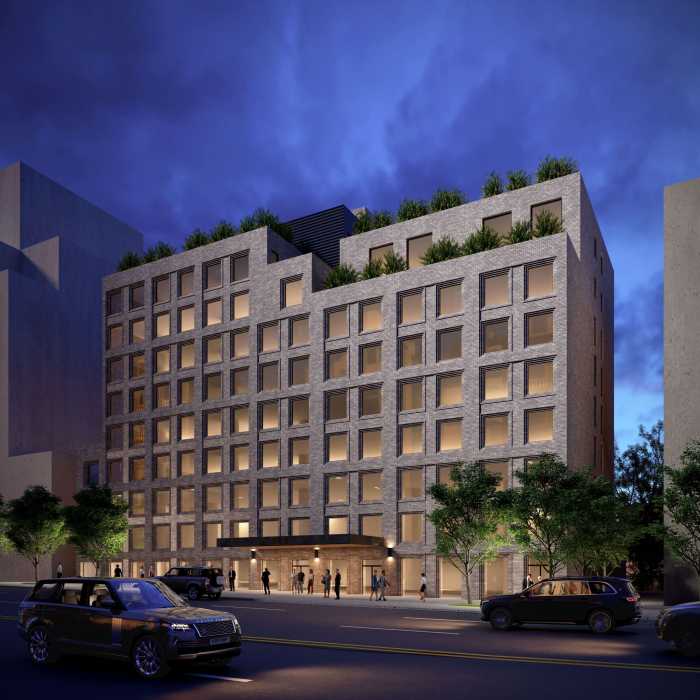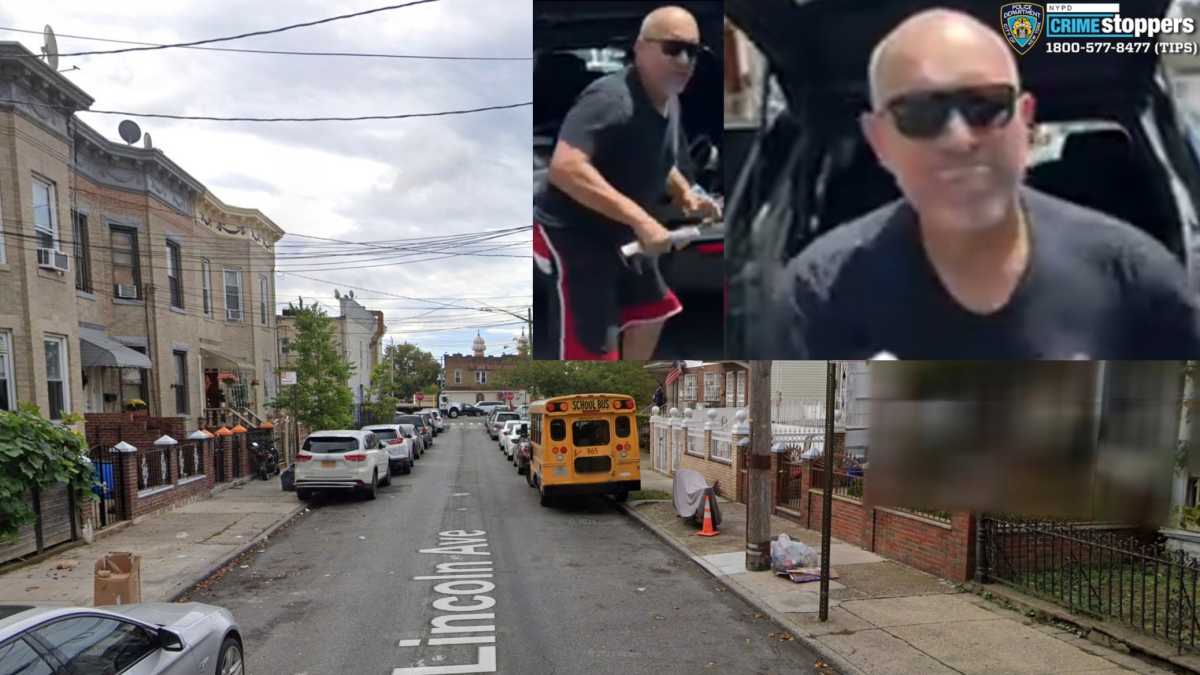Longstanding residents of 63 Tiffany Place, an affordable housing unit bordering Carroll Gardens and Cobble Hill, are pushing for legislation that would protect them against rent increases and unjust evictions by the greedy landlord they say is currently trying to push them out.
Most tenants have called the building home for decades, and originally moved into the property through a Low Income Housing Tax Credit. With that affordability program expiring in 2023, the fate of those residents’ homes now lies in the hands of a landlord who has forced them to pay rent increases — or face eviction.
John Leyva, a resident of nearly 30 years, is just one of the Tiffany Place tenants who is pushing for Good Cause Eviction — a bill that would set standards to protect residents against unjust rent hikes and retaliatory evictions. The law would require property owners to justify any proposed rent increases higher than 3% and would provide lease renewal protections for residents.
“Gone will be the days of landlords doubling and tripling people’s rents just because. With no reason, just because they feel like it,” he said. “There’s no real economic reason. It’s greed, plain and simple. If there’s a real justifiable reason, then Good Cause says, prove it.”
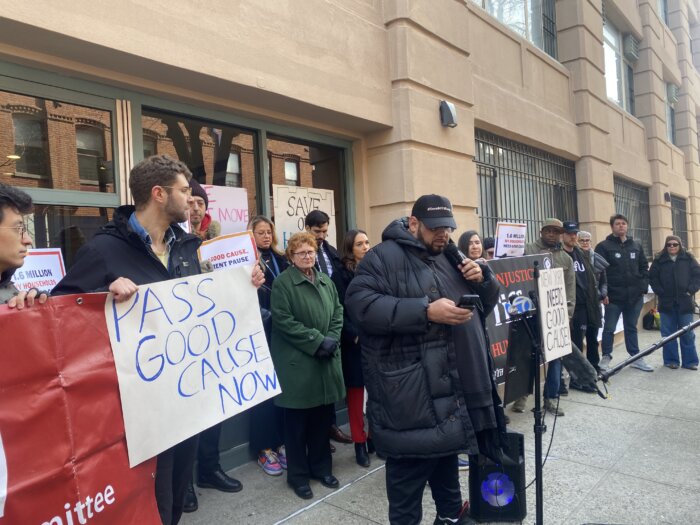
So far, the bill has garnered support from tenant organizations including Housing Justice For All and the Southwest Brooklyn Tenant Union (SWBTU).
A handful of elected officials have shown continuous support for Good Cause Eviction, including state Sen. Julia Salazar (who introduced the bill last year), Assembly Member Jo Ann Simon, Council Member Shahana Hanif and Comptroller Brad Lander. Carlos Calzadilla, southern regional vice president of Brooklyn Young Democrats, also backed the tenants at the rally.
“The owner does not need to throw out half of the tenants and bring in people who make five times as much money. The only reason would be to make a very wealthy person, even wealthier,” Lander said at a Feb. 22 rally outside of the building. “The law as it exists is a giant loophole that for no good reason other than the wealth of an extremely wealthy person will allow tenants in this building to be thrown out of their longtime homes and evicted from their neighborhood not because more money is needed to make the building work — not because they aren’t paying rent, but solely to juice the profits for a very wealthy owner.”
Salazar called the bill basic but “critically important” for longtime Brooklyn natives scared of being pushed out of their homes.
“There are far too many tenants in unregulated housing who live in fear daily that they will receive an enormous rent increase or that their lease will not be renewed for no reason at all,” she told the crowd at the Thursday rally. “This shouldn’t be controversial, this is about basic rights. This is about keeping families in their homes.”
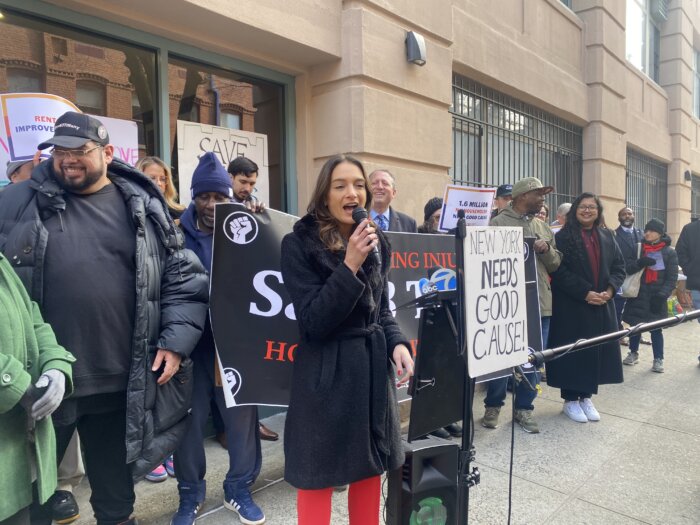
According to reports from the Community Service Society, 56% of market-rate tenants say they faced rent hikes in the past year. Market rate units, or locations in the private market that don’t have any regulation as to how much rent can be charged, are more likely to experience rent hikes compared to other tenants. CSS data also reveled renters are often asked to pay more, despite developers not making improvements within their building.
Irving Langer and E&M Associates LLC, the real estate management he leads, are listed as the landlord of 63 Tiffany Place. Known as one of the city’s most infamous evictors, Langer in 2018 found himself on the public advocate’s annual worst landlords list.
All attempts to contact Langer were unsuccessful. E&M’s website leads to a dead link.
The 70-unit building itself has a unique history. Formerly a warehouse, developers attempted to transform it into a condominium in the late 80s. When that failed, owners sold the property to Related Companies, who then decided to offer LIHTC-regulated affordable rental units.
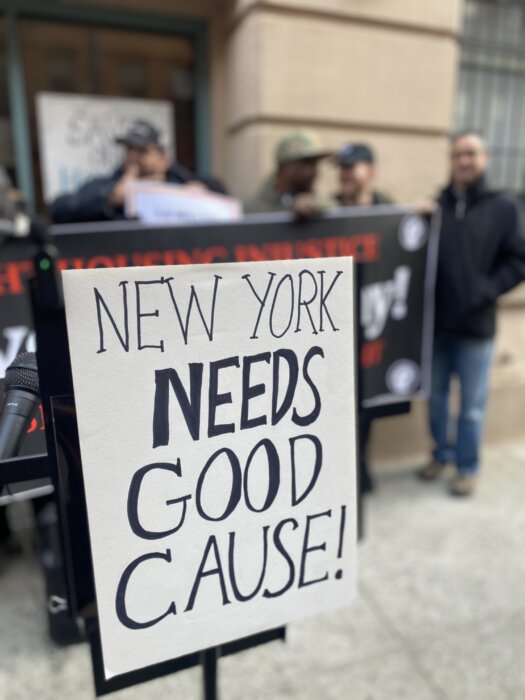
Those residents have since built a community they now say is endangered.
“We’re blessed to live on the best block in the greatest neighborhood in the world,” Leyva said, stressing that Good Cause would not just protect his neighbors, but it would benefit all New York City renters — and without hurting reasonable landlords. “We’re only one block long but it’s a strong block.”


